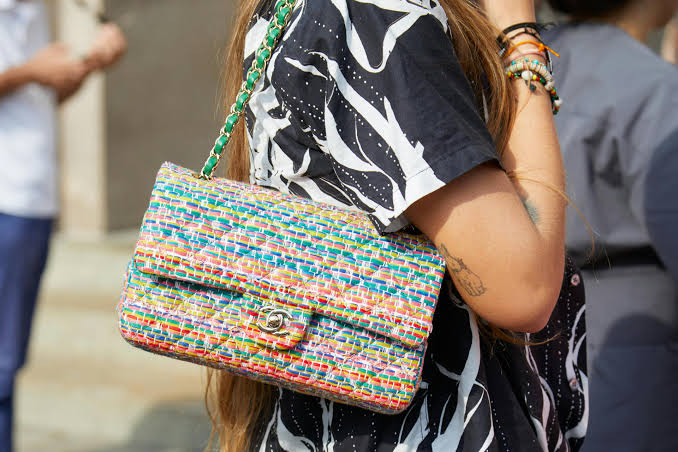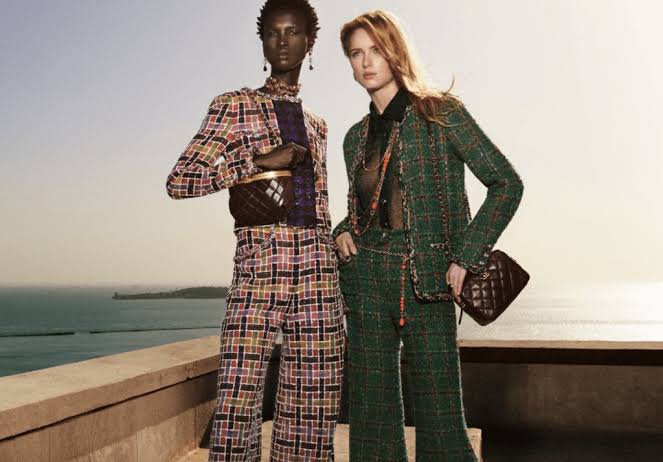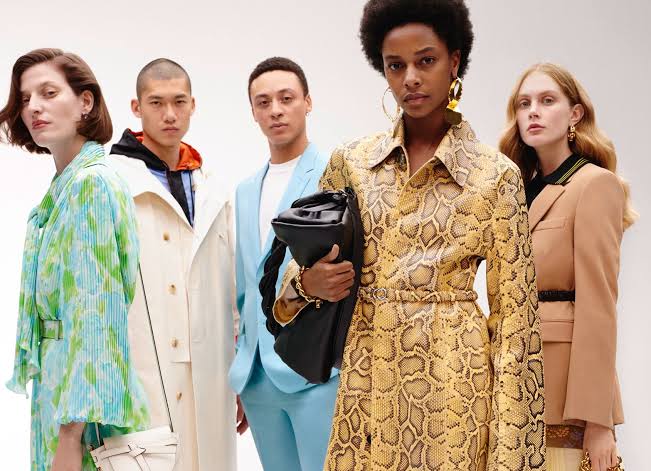Luxury never lingers. It just pops.
“Pop-Up.” Quick, catchy, a little bit chaotic. But behind the whimsy lies a well-oiled machine: branded temples disguised as temporary fun, where fashion, art, and marketing blur into one glossy hallucination.You Own a CHANEL Bag—But Do You Own Its Legacy?
by Thea Elle | August 16, 2025 | Luxury Bags
You’ve tracked down the vintage CHANEL 2.55 you’ve always wanted. The lambskin is luminous, the chain strap gleams, and your conscience is clear: sustainable, iconic, and far below retail. Yet as you peel away the wrapping and get ready to post it online, a peculiar unease arises.
This isn’t buyer’s remorse—it’s the quiet awareness of a legal shadow you never signed up for. CHANEL argues that while you own the physical bag, they retain rights over its story, its authentication, and even its future resale. The leather and hardware are yours, but the freedom to flaunt the brand? Not entirely.

You Got the Bag, But Not the Legacy
Every late-night project, every weekend side hustle, every small sacrifice at brunch—slowly, you amassed the funds. This wasn’t simply shopping; it was a mission. You studied resale listings like a linguist learning grammar, noting caviar leather versus lambskin, until the perfect vintage CHANEL 2.55 appeared. Clicking buy now felt like the culmination of years of discipline.
When it arrived, the unboxing was almost sacred. Tissue paper gave way to a supple, gleaming bag that seemed almost predestined. It was more than style—it was a personal monument to taste, effort, and patience. For a fleeting moment, the narrative felt yours. Then you realized: CHANEL might not agree.

CHANEL Resale Rules: First Sale, But Only on Their Terms
The first-sale doctrine should, in principle, allow you to resell what you legally own. Buy it fair, sell it fair—easy, right? But CHANEL has crafted legal loopholes with the precision of haute couture. The resale market becomes complicated the moment your activity enters what the brand calls “sacred territory.” Want to authenticate your vintage CHANEL bag independently? That’s over the line. Post photos reminiscent of CHANEL’s marketing style? Risky. Even calling a pre-owned bag “authentic” could spark legal scrutiny if it appears too much like an official statement from the brand itself.
The implication is stark: CHANEL is not merely protecting a product—they are protecting the story attached to it. While you may hold the quilted leather, the chain strap, and the clasps in your hands, the aura, prestige, and language remain firmly in CHANEL’s control. Intellectual property becomes a battlefield, where every resale listing, social media post, or authentication claim could potentially cross into forbidden territory. You may have conquered the challenge of saving, hunting, and finally acquiring your dream bag, but in narrative control, CHANEL has mastered the craft. Physical ownership does not equal control over meaning, branding, or the subtle prestige woven into the history of every bag.
Your CHANEL, in a State of Legal Superposition
That vintage CHANEL 2.55 you treasure now lives in a dual state: fully yours, but not entirely. Wear it, store it, admire it—but try to resell or describe it publicly, and you enter a gray zone curated by CHANEL. It’s a paradox reminiscent of quantum theory: the bag is authentic in your hands, yet potentially contested in theirs.
If Schrödinger had been a style icon, his thought experiment would feature a quilted flap bag instead of a cat—equally elegant, equally suspect until observed. In the resale market, proof and caution dictate the bag’s fate. Stay within the invisible legal lines, and your ownership is safe. Push the envelope, however, and the simple reality of having bought your dream bag becomes a tangled dance with CHANEL’s control over its image and authenticity.

When Luxury Resale Meets Legal Limits
The RealReal aimed to make high-end resale as effortless as online shopping: upload your item, authenticate it, and send it on to someone who values it as much as you did. Sustainability and style appeared to meet in harmony—until CHANEL intervened.
A fight over counterfeit products morphed into a drawn-out legal dispute about who holds the power to declare authenticity, how authenticity is communicated, and even which phrases or fonts are acceptable. The courtroom has become a fashion runway, with The RealReal promoting open access to luxury goods, while CHANEL insists on tight control over every aspect of its brand identity. For consumers, discerning caviar from lambskin is no longer sufficient. They must now navigate trademark law, marketing language, and the reality that a CHANEL bag is only truly “official” in the eyes of the brand.
The Digital Passport Era of Luxury
CHANEL isn’t sitting back while resale markets evolve on their own. The fashion house is exploring blockchain authentication, smart serial numbers, and other digital tools to ensure each bag reports back to headquarters. Imagine a digital birth certificate embedded in your flap bag, recording every transaction, every owner, and every transfer of hands. In CHANEL’s vision, your bag’s life story is written, monitored, and curated by them.
This could mean a future where resale only occurs on CHANEL-approved platforms, with approved descriptions and approved pricing. That $3,200 treasure you tracked down after years of careful saving might transform into a $7,800 “brand-endorsed experience,” with all the spontaneity stripped away. Your bag remains physically yours, but the freedom to sell, market, or even describe it could be in CHANEL’s hands alone.

Ownership vs. Authority: Who Calls the Shots?
You saved, you planned, you rejoiced when the chain slipped effortlessly over your shoulder—the bag was yours, a symbol of hard-earned accomplishment. And in the material sense, it truly is. But in luxury resale, the rules are written in a shifting language, and the voice behind the pen is almost always the brand itself.
So wear it proudly. Let the flap fall perfectly. Watch the gold hardware glint with every move. Just remember that in this fashion world, authenticity extends beyond stitching and leather. It is a performance, one in which you star, yet CHANEL retains the director’s chair.